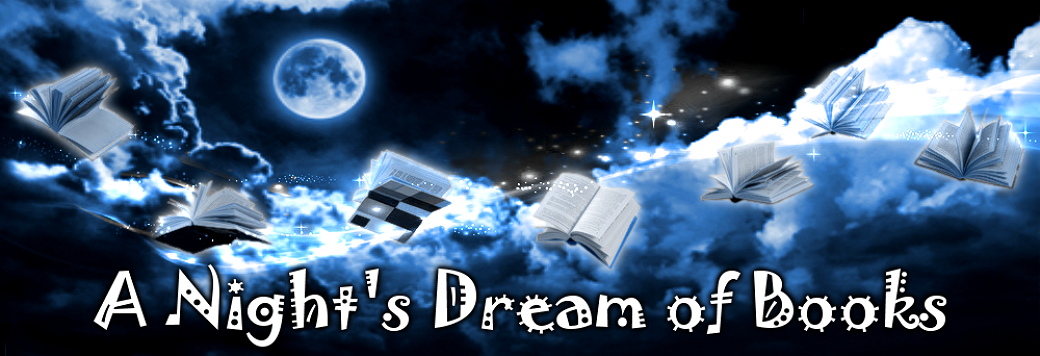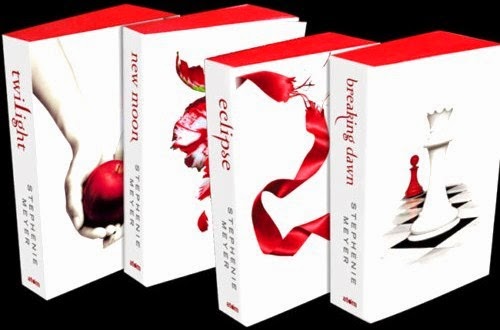Welcome to my new Friday feature!
In each bi-weekly post, I will be
exploring my thoughts on several
book-related topics.
I first encountered Twilight, the first book in The Twilight Saga, on Amazon sometime in 2006. When I opened the Amazon reader and dove in, I was immediately hooked! Fast forward to 2008, when I attended the midnight party for Breaking Dawn, in a local bookstore, even though I had already bought the novel.
It's more than obvious from the above that I have had "Twilight fever" since 2006, and I love this series as much today as when I first began to read it.
In light of all this, it really hurts and puzzles me to see Stephenie Meyer's writing, especially her prose style, being criticized. Most fans are aware of the vitriol with which author Stephen King has unfairly attacked her.
I find it hard to understand these criticisms. For instance, I have heard about her prose style being described as 'simplistic'. This charge is leveled by those who state that Meyer doesn't use 'advanced vocabulary' in these books. Well, I beg to differ.
There's a series of four books whose sole aim is to help high school students acquire vocabulary in preparation for several important exams, such as the SAT, ACT (these two are college entrance exams), GED, and SSAT. The first of these books is titled Defining Twilight. The series was authored by Brian Leaf, M.A., who is currently Director of the New Leaf Learning Center in Massachusetts.
Here are the samples:
* sauntered (pg.1)
* inconsequential (pg. 3)
* omnipresent (pg. 3)
* verbose
(pg. 5)
* permeable (pg. 6)
* bulbous (pg. 8)
* apprehensively (pg. 16)
* prattled (pg. 17)
* statuesque (pg. 18)
* lithe (pg. 19)
* vogue (pg. 20)
* surmised (pg. 48)
* fathom (pg. 48)
* vehemently (pg. 58)
* myriad (pg. 60)
I would say that this is very strong evidence that Meyer's writing is not as 'elementary' as some critics assert. That doesn't mean that these books are difficult to understand. But then, no book in the young adult genre, including such favorites as The Hunger Games, The Mortal Instruments series, the Beautiful Creatures series, the Divergent series, and the Harry Potter series, is difficult to understand. That's just in the nature of the genre.
Still, Meyer does rise to the level of literary fiction at times. Here are some examples, again from Twilight:
"It was raining, washing all traces of the snow away in clear, icy ribbons down the side of the walkway." (top of pg. 43)
"But of more immediate importance was the dark blue van that was
skidding, tires locked and squealing against the brakes, spinning
wildly across the ice of the parking lot." (top of pg. 56)
The two sentences above are excellent, very vivid word pictures. I can
see them very clearly in my mind. The second sentence even adds sound to
the written description.
"I closed my eyes and pressed my fingers to my temples, trying to push the guilt and sympathy out of my head."
(pg. 73)
This is also very effective. I know exactly how Bella is feeling here. The metaphor of 'trying to push' emotions out of one's head is just perfect.
"The sharp sound as the gloves snapped into place against his wrists seemed ominous to me." (pg. 94)
I can definitely hear those gloves snapping, and yes, the sound IS ominous!
"I put my cheek against the cool black tabletop and tried to hold on to my consciousness." (pg. 95)
(pg. 73)
This is also very effective. I know exactly how Bella is feeling here. The metaphor of 'trying to push' emotions out of one's head is just perfect.
"The sharp sound as the gloves snapped into place against his wrists seemed ominous to me." (pg. 94)
I can definitely hear those gloves snapping, and yes, the sound IS ominous!
"I put my cheek against the cool black tabletop and tried to hold on to my consciousness." (pg. 95)
This is another vivid word picture, and in just a few words. If the tabletop was cool, that means she was already sweating. The blackness of the tabletop reinforces the ominous sound of the gloves snapping against the teacher's wrists. And how do you actually 'hold on' to consciousness, which is intangible? But the reader understands how Bella is feeling.
As if the above examples weren't enough, there's this absolutely gorgeous passage, found on page 232 of Twilight:
"I tried to describe impossible things like the scent of creosote -- bitter, slightly resinous, but still pleasant -- the high, keening sound of the cicadas in July, the feathery barrenness of the trees, the very size of the sky, extending white-blue from horizon to horizon, barely interrupted by the low mountains covered with purple volcanic rock. The hardest thing to explain was why it was so beautiful to me -- to justify a beauty that didn't depend on the sparse, spiny vegetation that often looked half-dead, a beauty that had more to do with the exposed shape of the land, with the shallow bowls of valleys between the craggy hills, and the way they held on to the sun. I found myself using my hands as I tried to describe it to him."
This is an exquisitely written passage, full of very visually descriptive writing. Is this passage 'simplistic'? Well, it's certainly easy to understand, but it takes someone with real writing talent to write something like this. The richness of the whole passage, as she uses words that paint scenes in the imagination, the sheer beauty of the metaphors and how they're placed in this beautiful flow of words -- everything here points to someone who loves language, and uses it skillfully. In spite of the fact that this was Meyer's first novel, there's no hint of the amateur here. Instead, this short, sonorous passage (it should really be read aloud in order to capture its full flavor) is the work of a consummate master.
Of course, not every page of a novel, whether written by Meyer or Hemingway, lends itself to such writing. There's dialogue, after all, which means that a writer has to switch gears, so that his/her dialogues sound realistic. People don't speak in long sentences full of vivid descriptions, unless they're eccentric poets who habitually and deliberately pepper their conversations with poetic phrases. Most of us don't do this. So, when writing dialogues, a writer has to use more colloquial language such as slang, and write shorter sentences. Does this make a novelist's prose style 'simplistic'? Not in the least.
Here are dialogues from two different books. All identifying characteristics have been removed. Can you guess who the authors are? (Answers at the end of this post. HINT: One of them is a classic, literary fiction writer.)
"There, darling, now you're all clean inside and out. Tell me, how many people have you ever loved?"
"Nobody."
"Not even me?"
"Yes, you."
"How many others really?"
"None."
"How many others have you -- how do you say it? -- stayed with?"
"None."
"You're lying to me."
"Yes."
--------------------------
"Do my questions bother you?"
"Not as much as your reactions do."
"Do I react badly?"
"No, that's the problem. You take everything so coolly -- It's unnatural."
"I always tell you what I'm really thinking."
"You edit."
"Not very much."
"Enough to drive me insane."
These are two examples of how writing style changes when dialogue is involved. Gone are all the detailed descriptions full of metaphors and similes. Speech in literature, as in real life, is frequently full of short sentences and questions. In the two examples above, dialogue is used as a vehicle for dramatic tension, as well as information to the reader about the personalities of the characters.
My point? Even writers of literary fiction tend to be 'simplistic' in the case of dialogue. That's certainly not the case when they're vividly describing settings in their novels.
To sum up, I believe it's totally unfair that Stephenie Meyer's writing has been criticized as severely as it has been, and far too often. To my knowledge, no other contemporary author has been treated like this. Perhaps, in a future post, I'll delve deeper into the possible reasons for this unwarranted criticism.
(First dialogue: from A Farewell to Arms, by Ernest Hemingway. Second dialogue: from Twilight, by Stephenie Meyer)
For Further Information
What do you think of my views?
Do you agree or disagree?
Please leave me a comment below!




I agree. This is an excellent post! I really enjoyed the Twilight books and I like Meyer's writing style. It sucks you in and makes you not want to stop reading. I didn't even notice the good vocab words she included, but that's excellent too. People are gonna hate on everything, but her books are very successful and there's a good reason for it :)
ReplyDeleteHi, Julie!
DeleteI'm SO glad you agree!! Yes, indeed, Stephenie Meyer's writing style is very compelling, and it DOES suck you in! This woman really knows how to tell a good story!! After I finished "Twilight", I immediately ordered "New Moon", and then I was in agony, having to wait an ENTIRE year for "Eclipse" to come out....
I have now read the entire saga THREE times, and watched the movies just as many times. I can't get enough of it!!
I really can't understand why Meyer has been so heavily criticized. Could it be because she's a Mormon? I wonder....
Thank you so much for commenting back with such a GREAT comment!!! : )